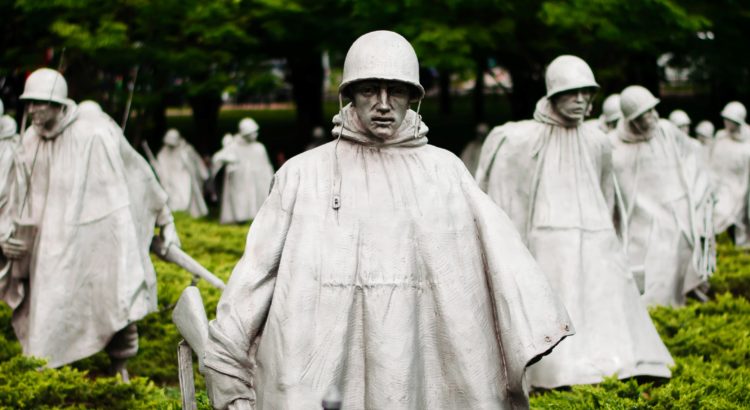Level C1 and above
I like La Marseillaise, the French national anthem (hymne nationale). It’s inspiring and exhilarating. But then, I found a translation. I now sympathise with French footballers and others who seem to be tongue-tied when it thunders, pre-match or pre-ceremony, over the loudspeakers.
Why would any vaguely responsible person in 2021 really wish to enthusiastically sing the following lyrics?
Do you hear in the countryside, the roar of these savage soldiers, they come right into our arms, to cut the throats of your sons and women! May impure blood water our fields!
(Entendez-vous dans les campagnes
Mugir ces féroces soldats?
Ils viennent jusque dans vos bras
Égorger vos fils, vos compagnes!
Aux armes, citoyens,
Formez vos bataillons,
Marchons, marchons!
Qu’un sang impur
Abreuve nos sillons!)
Anthems are generally pretty ugly songs, both musically and lyrically. In the next few weeks, you are going to get an earful. The UEFA Euro 2020, which like anthems, seems to have got lost in a time warp, will offer up the pre-match cringe spectacle of tattooed primates in their prime stumbling over the words of nations’ calls to war, followed by the awful theatre of crowds booing as players take the knee against racism.
We encourage our children to give blood, not to irrigate our lands with it
We educate our children to be compassionate and non-violent. We speak to them of fair play, respect for ethnic and sexual diversity. We encourage them to give blood, not to spill it or irrigate our lands with it.
Yet, we expect them to fervently chant racist and violent diatribe with a hand clasped over their hearts.
Anthems are frozen in time. Often times of war. Many anthems are tribal calls to war. They speak of rivers of blood, death to the foreigners and our own selfless death in defence of the sacred lands within our glorious borders. It’s all a bit Kim Jong-unesque. A little outdated and uncivilised in this day and age, you might say.
It is sung to the beat of war; the melody of machine guns and the rhythm of gunpowder
The Algerian national anthem Qassaman (We Pledge) written in 1956 by poet writer Moufdi Zakaria is as dire as Le Marseillaise. It is sung to the beat of war; the melody of machine guns and the rhythm of gunpowder.
We swear by the lightning that destroys,
By the streams of generous blood being shed.
When we spoke, none listened to us,
So we have taken the noise of gunpowder as our rhythm,
And the sound of machine guns as our melody…
This cry for war is perhaps understandable, as it was allegedly written on the walls of Zakaria’s cell in blood between spells of torture in a French colonial prison.
Il Canto degli Italiani (The Song of the Italians) was written by a 20 year old.
As you can imagine, it speaks of lazy summery afternoons, floral dresses, fine wines and a delicious plate of Pappardelle ai Funghi. No, of course it doesn’t.
We are ready to die
The over-riding message is sacrifice:
We are ready to die (siam pronti alla morte). This line is repeated four times in each chorus and the chorus is sung four times. That is 16 times each anthem. That’s brainwashing according to a UN charter.
Mercenary swords, they’re feeble reeds.
The Austrian eagle has already lost its plumes.
The blood of Italy and the Polish blood it drank, along with the Cossack.
But it burned its heart.

They’re just the kind of merry songs that unite us.
The Turkish national anthem İstiklâl marşı elevates martyrdom to a new level.
Render your chest as armour and your body as trench!
For only then, shall my fatigued tombstone, if there is one,
prostrate a thousand times in ecstasy,
and tears of fiery blood shall flow out of my every wound,
and my lifeless body shall gush out from the earth like an eternal spirit.
If the Americans had heard (and understood) the Vietnamese national anthem in the 1950s they would have quickly understood that dominoes was a game to be played at home, rather than a political theory to base a war upon
If the Americans had heard (and understood) the Vietnamese national anthem in the 1950s they would have quickly understood that dominoes was a game to be played at home, rather than a political theory to base a war upon.
The Vietnamese anthem, The Song of the Marching Troops (Tiến Quân Ca) basically translates as: I wouldn’t make me angry, if I were you….
Our flag, red with the blood of victory, bears the spirit of the country;
The distant rumbling of the guns mingles with our marching song;
The path to glory is built by the bodies of our foes;
For too long have we swallowed our hatred. Be ready for all sacrifices.
Hats off to Spain, Bosnia and Herzegovina, Kosovo and San Marino. They are the only countries that have wordless anthems, a trend that should definitely be adopted worldwide. Besides, who actually knows all the words to their anthem and, for that matter, who would really want to sing with pride about gushing rivers of blood?
Thankfully, there are some anthems that lift hearts and souls, rather than swords and guns. One is called the European Union Anthem.
Anthems to listen to (with English subtitles)
France – La Marseillaise
Italy – Il Canto degli Italiani
Vietnam – Tiến Quân Ca
The Sex Pistols – God Save the Queen
Jimi Hendrix – The Star Spangled Banner
The Swiss anthem is wordy (especially in four languages) and God-centred. The enemy is the weather.
When the morning skies grow red
And over us their radiance shed
Thou, O Lord, appeareth in their light!
When the alps glow bright with splendor,
Pray to God, to Him surrender!
For you feel and understand
That God dwelleth in this land.
That God, the Lord, dwelleth in this land.
In the sunset Thou art night
And beyond the starry sky
Thou, O loving father, ever near!
When to Heaven we are departing
Joy and bliss Thou’lt be imparting!
For we feel and understand
That God dwelleth in this land.
That God, the Lord, dwelleth in this land.
When dark clouds enshroud the hills
And gray mist the valley fills
Yet Thou art not hidden from thy sons!
Pierce the gloom in which we cower
With Thy sunshine’s cleansing power
Then we’ll feel and understand
That God dwelleth in this land.
That God, the Lord, dwelleth in this land.
Towards us in the wild storm coming,
You yourself give us resistance and stronghold,
You, almighty ruling, rescuing!
During horror and nights of thunderstorms
Let us childlike trust Him!
Yes, we feel and understand,
That God dwelleth in this land.
That God, the Lord, dwelleth in this land.


